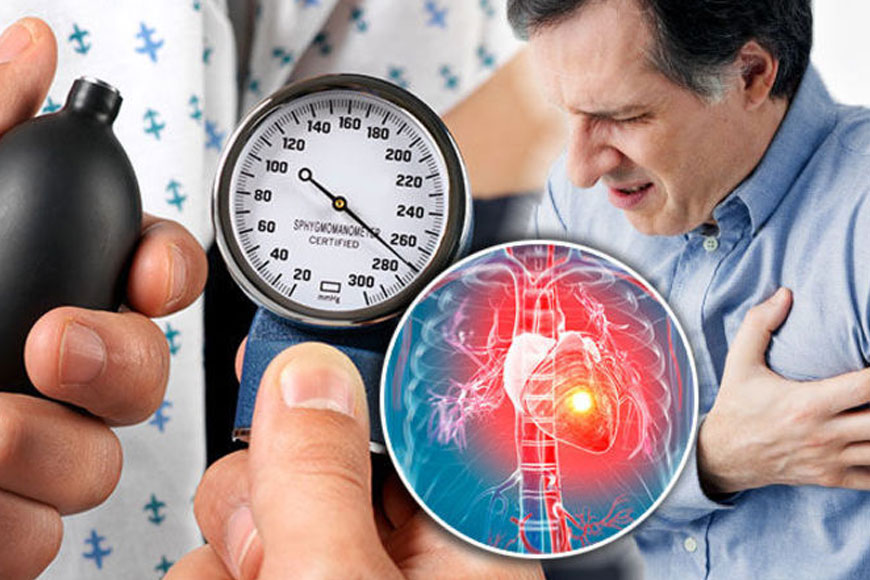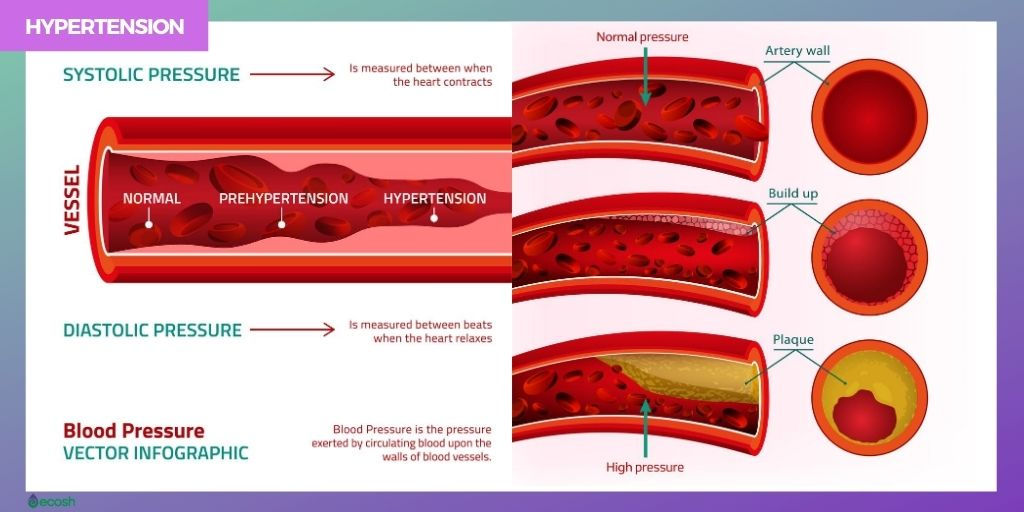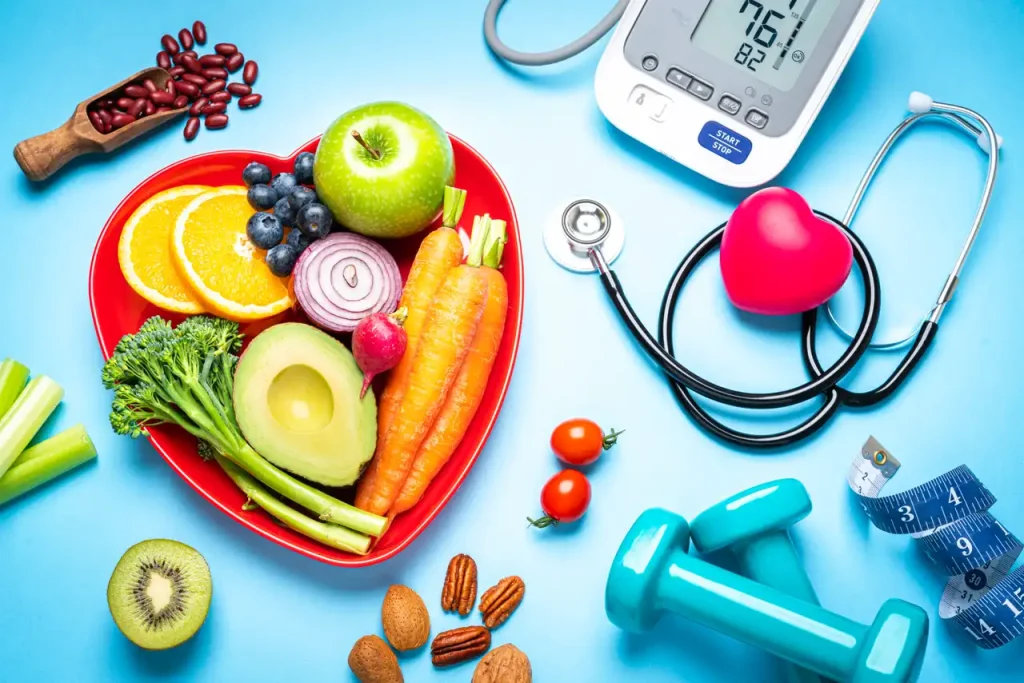High blood pressure, also known as hypertension, is a common health condition that affects millions of people worldwide. It occurs when the force of blood against the walls of the arteries is consistently too high, putting added strain on the heart and blood vessels. Over time, uncontrolled high blood pressure can lead to serious health complications, including heart disease, stroke, and kidney damage. Understanding the causes of high blood pressure and learning how to manage it is crucial to maintaining overall health and well-being.
High Blood Pressure
High blood pressure typically develops over many years and can be influenced by a variety of factors, both modifiable and non-modifiable. The causes of hypertension can be broadly classified into two categories: primary (essential) hypertension and secondary hypertension.

Primary Hypertension
In most cases (about 90-95%), the cause of high blood pressure is not directly related to another health condition. This type is referred to as primary hypertension or essential hypertension. While the exact cause is not always clear, several factors can contribute to its development, including:
1. Genetics and Family History
Hypertension often runs in families, suggesting that genetic factors play a significant role. If you have close relatives with high blood pressure, you may be more likely to develop the condition yourself.
2. Age
Blood pressure tends to rise with age. As people grow older, the blood vessels naturally lose some of their elasticity, which can increase the resistance to blood flow, thereby raising blood pressure.
3. Lifestyle Factors
Poor lifestyle choices can significantly contribute to high blood pressure. Factors such as a diet high in salt, lack of physical activity, excessive alcohol consumption, and smoking can all increase the risk of developing hypertension.
4. Obesity
Being overweight or obese puts added strain on the heart and increases the likelihood of developing high blood pressure. Excess fat around the abdomen can cause the body to release hormones that raise blood pressure.

Secondary Hypertension
In some cases, high blood pressure may be a symptom of another underlying health issue, such as kidney disease, hormonal disorders, or sleep apnea. This type of high blood pressure is called secondary hypertension and accounts for about 5-10% of all hypertension cases. Conditions that can lead to secondary hypertension include:
1. Kidney Disease
The kidneys play a crucial role in regulating blood pressure by controlling the volume of blood in the body. If the kidneys are not functioning properly, it can lead to an increase in blood pressure.
2. Hormonal Disorders
Certain hormones, such as those produced by the thyroid gland or adrenal glands, can affect blood pressure. Conditions like hyperthyroidism or Cushing’s syndrome can lead to elevated blood pressure levels.
3. Sleep Apnea
Obstructive sleep apnea, where breathing stops and starts during sleep, has been linked to high blood pressure. The repeated drops in oxygen levels can strain the heart and raise blood pressure.
4. Medications
Some medications, such as nonsteroidal anti-inflammatory drugs (NSAIDs), birth control pills, and decongestants, can contribute to elevated blood pressure.

How to Manage High Blood Pressure
Managing high blood pressure is essential to reduce the risk of serious health problems. Fortunately, there are several strategies that can help control hypertension, many of which involve making lifestyle changes. Here are some effective ways to manage high blood pressure:
1. Maintain a Healthy Diet
A well-balanced diet can have a significant impact on blood pressure. The DASH (Dietary Approaches to Stop Hypertension) diet is specifically designed to lower blood pressure and includes foods that are rich in fruits, vegetables, whole grains, lean proteins, and low-fat dairy. Additionally, reducing the intake of sodium (salt) can help lower blood pressure. The American Heart Association recommends limiting daily sodium intake to no more than 2,300 milligrams, ideally aiming for 1,500 milligrams for better results.
If you feel any stress or anxiety get the best Stress test in Dubai for quick appointment click here.
For your information
The best healthy diet and foods that boost cardiovascular health and are best for heart click here to get more information.
2. Exercise Regularly
Physical activity is one of the most effective ways to manage high blood pressure. Regular exercise helps strengthen the heart, allowing it to pump blood more efficiently and reducing the force on the arteries. Aim for at least 150 minutes of moderate-intensity exercise (such as brisk walking, cycling, or swimming) per week. Even simple activities like walking can have a positive impact on blood pressure.
For your information
3. Limit Alcohol and Quit Smoking
Excessive alcohol consumption and smoking can both contribute to high blood pressure. Drinking too much alcohol can raise blood pressure and damage the heart over time. The American Heart Association recommends limiting alcohol intake to one drink per day for women and two drinks per day for men. Smoking raises blood pressure by narrowing the blood vessels, and the chemicals in tobacco can damage the walls of the arteries. Quitting smoking is one of the best things you can do for your overall health.
4. Reduce Stress
Chronic stress can contribute to high blood pressure. Managing stress through techniques such as mindfulness, meditation, deep breathing exercises, and yoga can help reduce stress levels and promote relaxation. It’s also important to get enough sleep, as lack of sleep can increase blood pressure over time.
For your information
If you feel any anxiety or stress on your heart, get the best stress test in Dubai for immediate appointment Click here
5. Monitor Your Blood Pressure Regularly
Regularly checking your blood pressure can help you stay on top of any changes and ensure that your efforts to manage it are working. Many people with high blood pressure may not experience noticeable symptoms, so monitoring is crucial. Your healthcare provider may also prescribe medication to help control blood pressure if lifestyle changes alone are not enough.

Conclusion
High blood pressure is a serious condition that can lead to significant health complications, but it can often be managed effectively with the right approach. By understanding the causes of high blood pressure and adopting a healthy lifestyle, you can take steps to lower your risk and maintain your heart health. If you have concerns about your blood pressure or are unsure how to manage it, it’s important to consult a healthcare professional who can guide you in the right direction.
FAQs
1. What is considered high blood pressure?
High blood pressure is typically defined as having a reading of 140/90 mmHg or higher. A normal reading is usually below 120/80 mmHg. If your blood pressure consistently reads 130/80 mmHg or higher, it is considered elevated and may require treatment.
2. Can stress cause high blood pressure?
While stress itself doesn’t directly cause chronic high blood pressure, it can contribute to temporary spikes. Over time, chronic stress can lead to poor lifestyle choices (like unhealthy eating or smoking) that increase the risk of hypertension.
3. How can I lower my blood pressure without medication?
You can lower your blood pressure by adopting a healthier lifestyle, such as eating a balanced diet, exercising regularly, reducing salt intake, limiting alcohol, quitting smoking, and managing stress through techniques like yoga and meditation.
4. Is high blood pressure genetic?
Yes, high blood pressure can run in families. If your parents or close relatives have high blood pressure, you may be at a higher risk. However, lifestyle factors also play a major role in developing the condition.
5. Can high blood pressure be cured?
High blood pressure can’t be cured, but it can be managed effectively with lifestyle changes and medication. Consistently controlling your blood pressure can help prevent complications and improve your overall health.